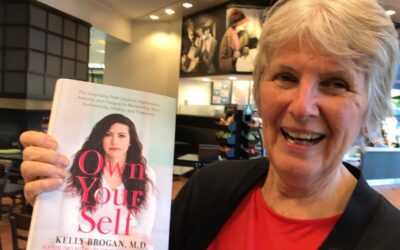It happens all the time. A prospective client contacts me about their book, wanting my book coaching or editing services to help in some phase of its completion. But their request is vague, not tailor-made for my packages and rates. They only know what they want, not what I could provide. And what they want isn’t always what they need.
When the Author Doesn’t Know What They Need
Working directly with authors has its challenges, requiring people skills and frequent communication. But I find the biggest challenge is responding to the vague request, and, I’ve learned over the years, it’s also a big opportunity. When an author doesn’t know exactly what she or he wants, you get to shape things to go the way you want them to go—which, ultimately, is best for the author.
Take, for example, a request that came over my email from a prospective client who first contacted me months ago.
“I’m sending you my chapters in a few days,” she wrote, and after my welcoming reply, I didn’t hear from her for months.
This is not atypical—she said she’d gotten derailed, travel to China, illness, etc. All this time, she’s been working on her ms. and is now ready to use my services as a book editor/coach. She’d been referred by a highly successful client who has been telling all her friends about me (the kind you want and you’ll even come down in price for—as I did!), and the only thing she knew for sure: I was her book editor of choice. (It didn’t hurt that she stroked my ego and lavished praise on me for helping her friend!)
So what does she need? In her email, her confusion was apparent: “I want to give it one more once-over before I send it to you, maybe in about ten more days.”
But then at the end, a plea: “Can I just send you one chapter at a time? It would help me to get feedback as I go along. . . .”
Hmm. In my early editorial days, I’d have said sure, anything to accommodate an author and support them in their journey. But in wisdom gained, I was slower to reply, needing to give it more thought. Plus, I’d just signed a contract on my fourth book project, and for me, even full-time, five projects at once is a bit too much.
The chapter-by-chapter method was starting to appeal.
Time for a Book Evaluation
But I still didn’t jump. Instead, I wrote back, requesting a sample chapter or two, not more than fifty pages total, and a table of contents (TOC) so I could evaluate her materials. I also explained that I wanted to see how any support I could give might fit into my schedule and benefit her. Oh, and I charged her $295 to do that.
“The check is in the mail,” came her quick reply, accompanied by an electronic file containing the requested materials. I had convinced her she didn’t really need that extra ten days, that my window was NOW, and she’d best jump on if she wanted to get my assessment.
A couple of factors went into my evaluation of what I could do for her and how much time it would take. For one, her writing was good, better than expected from a nonwriter on her first novella. But the telltale signs of a new writer were still there: abrupt transitions, clunky chapter endings, poor dialogue, too many diversions.
So what could I do for her, given my limited time and her great need? I thought of referring her to my associate who is more experienced with fiction than I am, but this client’s book fell somewhere in between fiction and nonfiction, having many autobiographical/memoir elements.
Taking the Book Coaching Route
So I decided to take the bite-by-bite approach.
“Send me your next chapter,” I wrote back. “You clearly need some guidance in the following aspects (list), but I don’t have time to implement these changes myself. You’re a good enough writer to be able make the changes yourself.”
And then: “But if you don’t want to do that, if you want an editor who will take your ms. and perform editorial magic on it (developmental and line edit), then you should wait until you’ve got all your chapters in their best shape and send it on for a full ms. edit.” For that, I gave her two choices. “I can do that in October [eight months down the road], or I can refer you to a highly skilled editor I work with who can do that sooner.”
She took option A, sending me chapters that I was able to turn around with developmental suggestions over the next eight months, while working on my other, more demanding projects.
At the end of our working together, she had a manuscript ready for a line edit. Voila! Happy client, schedule I can live with, and money in the bank.
Oh, did I mention her book is aimed at empowering young women in their business and personal choices? One of my favorite topics, a big bonus for me!
To learn more about the Seven Editorial Roles, including Book Coach, take a look at this page.



